
The Complete Guide To Rhodiola
Rhodiola rosea has long been used in the traditional holistic practices of various cultures. From Russia to ancient Greece, it's maintained some popularity over the centuries. Here we look at its potential benefits, and share where you can find it!
The plant world is bursting with goodness! Providing us with food, cosmetics, medicine, and even psychoactive experiences, it has a lot to offer. In this article, we look at a plant called rhodiola. Popular in traditional Russian, Chinese, and Greek holistic practice, some assert that the root of this plant may promote endurance, cognition, and more.
Here we look at the history of this plant, and some of the research surrounding its potential wellness benefits.
What is rhodiola?
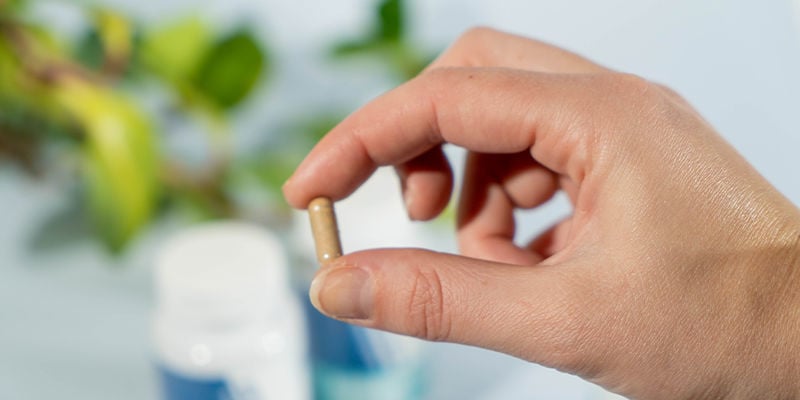
Rhodiola (Rhodiola rosea) is a flowering plant that grows in Northern Europe and Asia, and goes by many names—such as golden root, rose root, and king’s crown. In nature, it grows at high altitudes. Rhodiola has one yellow flower at the top, with many green leaves growing beneath it.
Rhodiola is often considered a holistic herb, but it is actually the root, not the leaves or flowers, that contains over 140 different compounds of interest.
Are rhodiola and ashwagandha the same?
Rhodiola and ashwagandha are distinct plants from different regions. Ashwagandha grows in hotter, more arid climates such as North Africa, West Asia, and South Asia, and has a history of use in the ayurvedic practices of India.
But the two do have similarities.
Both are considered to help to promote focus, by some. Indeed, many people take ashwagandha and rhodiola together in hopes of reaping the potential benefits of both.
The history of rhodiola
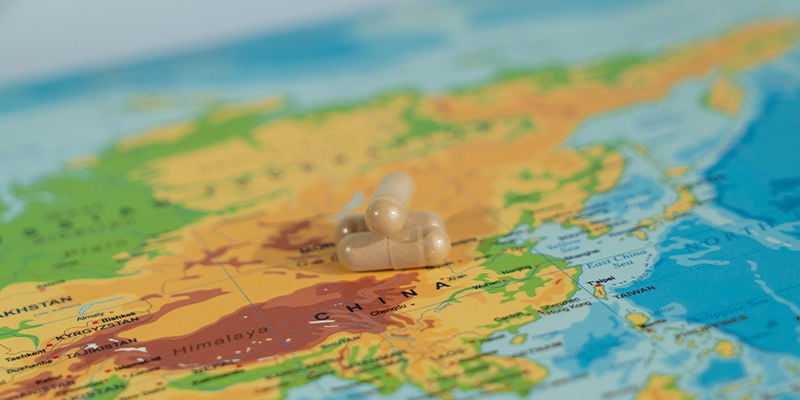
Rhodiola has a long history of use. From traditional Chinese medicine through to ancient Greece, Russia, and even Viking cultures, many have sought out the golden root for its potential benefits.
In most cases, Rhodiola rosea root was brewed as a tea and consumed that way. Highly sought after, it was awarded considerable value in the past, and has, in some cases, even aroused jealousy.
In Russia, if families discovered rhodiola growing, they would often keep its location secret and then exchange the root for various goods, such as food and wine. In ancient China, traders would be sent up into Siberia, and would return with golden root among other goodies. Likewise, ancient Greek traders would travel as far north as what is today Georgia to get their hands on rhodiola root.
In some parts of the world, rhodiola is less known. But it has continued to be a popular supplement in Russia, where it has been widely available for the last century. Now, it is making a comeback in Western Europe too.
What are the potential benefits of taking rhodiola?

Many potential benefits of rhodiola are touted, but there is not enough evidence to support most of them. However, below we examine the available research on rhodiola root’s possible effects on the body.
Rhodiola and stress
In a 2018 study, researchers administered rhodiola extract to participants suffering from stress-related burnout to determine if the plant exhibits any significant effects (Kasper and Dienel). 118 participants took 400mg of rhodiola per day for 12 weeks. The researchers noted statistically significant changes, with the most dramatic change happening within the first week. These changes then persisted throughout the study.
It’s worth noting that this study did not involve a placebo control group, so it’s not possible to say with authority that the proposed changes were due to rhodiola.
Rhodiola and fatigue
Rhodiola was often used in traditional practices by those experiencing fatigue, and there is some modern research that delves deeper into the subject.
A study from 2017 saw researchers administer 400mg of rhodiola per day to a group of participants in hopes of determining the root’s effect on fatigue (Lekomtseva, Zhukova and Wacker). Much like the previous study, the researchers observed the most apparent effects within a week, and these appeared to persist for the duration of the eight-week study.
Rhodiola and memory & cognition
Animal studies suggest that rhodiola might impact memory function and cognition. A 2018 review looked into 36 different animal studies and concluded that rhodiola appeared to have some effect on memory ability (Ma et al.).
Furthermore, a 2019 review suggests that rhodiola should be studied in relation to its potential for combating age-related conditions such as Alzheimer’s and Parkinson’s (Zhuang et al.).
Is rhodiola safe to use?
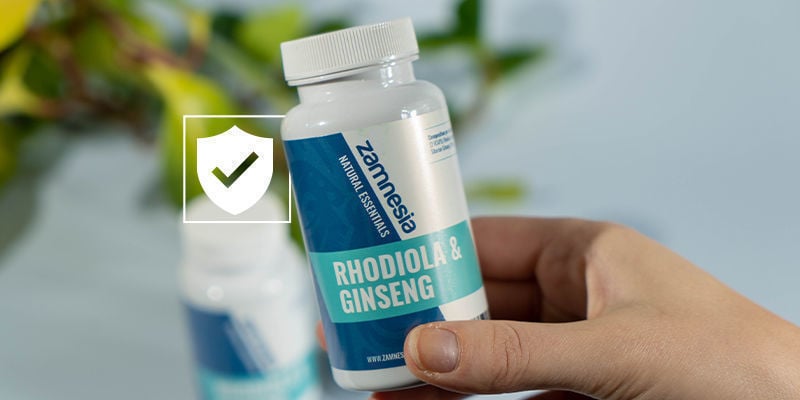
Rhodiola appears to be very safe. That being said, the supplement market is broad and largely ungoverned, meaning that many supplements may contain additional ingredients or contaminants—or perhaps may not contain any of what they claim. Therefore, it’s important to source your rhodiola from a reputable seller.
For those who are pregnant, breastfeeding, or taking medication, it’s important to talk to a medical professional before taking rhodiola, as it’s simply not known what effects it might have on a baby, or whether it interacts with any drugs in a dangerous way.
Are there any side effects caused by rhodiola?
Rhodiola has no known serious side effects. However, some mild side effects include:
- Dizziness
- Dry mouth
- Sleep problems
- Jitteriness
Many people experiencing fatigue take rhodiola; as such, it’s worth taking rhodiola earlier in the day, just in case it stops you from sleeping properly. Likewise, there is some evidence suggesting that people who suffer from anxiety may experience stronger feelings of jitteriness if they take rhodiola.
Will rhodiola show up on a drug test?
No. Drug tests do not test for the metabolites produced by rhodiola. Moreover, rhodiola is not a drug. As far as is known, it can’t trigger false positives for any drugs.
How can you experience rhodiola for yourself?
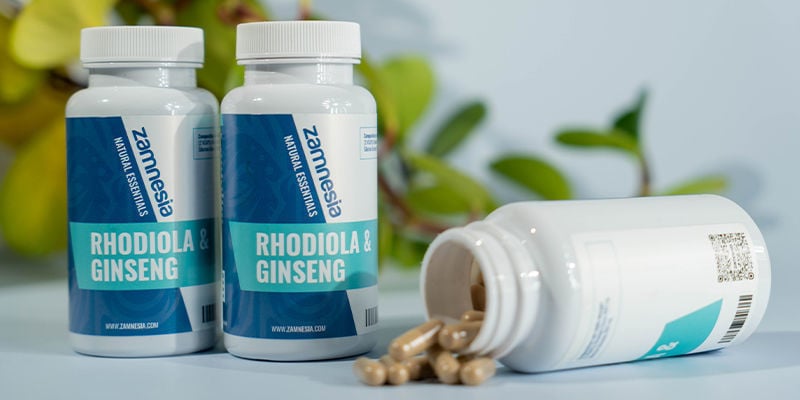
Rhodiola is easy to experience for yourself—just head over to the Zamnesia Healthshop for a range of high-quality products.
That’s not all you’ll find there either. Why not check out our top 10 Healthshop products to get an idea of what else you can find? You’ll find 5-HTP, damiana, yerba mate, and much more!
- Ma, Gou-ping, Zheng, Qun, Xu, Meng-bei, Zhou, Xiao-li, Lu, Lin, Li, Zuo-xiao, Zheng, & Guo-Qing. (2018/12/04). Rhodiola rosea L. Improves Learning and Memory Function: Preclinical Evidence and Possible Mechanisms - https://www.frontiersin.org
- Siegfried Kasper, & Angelika Dienel. (2017/03/22). Multicenter, open-label, exploratory clinical trial with Rhodiola rosea extract in patients suffering from burnout symptoms - https://www.dovepress.com
- Wei Zhuang, Lifeng Yue, Xiaofang Dang, Fei Chen, Yuewen Gong, Xiaolan Lin, & Yumin Luo. (2019/02/01). Rosenroot (Rhodiola): Potential Applications in Aging-related Diseases - http://www.aginganddisease.org
- Yevgeniya Lekomtseva, Irina Zhukova, & Anna Wacker. (2017). Rhodiola rosea in Subjects with Prolonged or Chronic Fatigue Symptoms: Results of an Open-Label Clinical Trial - https://www.karger.com
-
 4 min
2 March 2023
What You Need To Know About Ashwagandha
Ashwagandha has remained a staple in Ayurvedic tradition for thousands of years. Claimed to exhibit a whole range of benefits, here we look at the available research to see what it has to say about...
4 min
2 March 2023
What You Need To Know About Ashwagandha
Ashwagandha has remained a staple in Ayurvedic tradition for thousands of years. Claimed to exhibit a whole range of benefits, here we look at the available research to see what it has to say about...
-
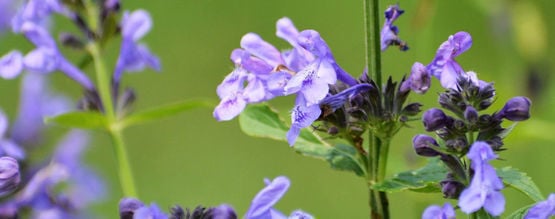 4 min
27 December 2022
Skullcap: Everything You Need To Know
Otherwise known as Scutellaria baicalensis, skullcap is a herb whose use dates back to ancient China. But does it still have a place in today's world? With a bevy of possible benefits in tow, we...
4 min
27 December 2022
Skullcap: Everything You Need To Know
Otherwise known as Scutellaria baicalensis, skullcap is a herb whose use dates back to ancient China. But does it still have a place in today's world? With a bevy of possible benefits in tow, we...
-
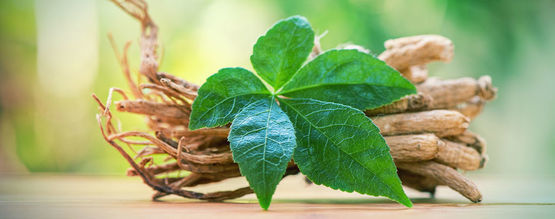 4 min
27 October 2022
Getting To Know Ginseng
A staple of traditional Chinese medicine, ginseng still has a valued place in the modern world. Thanks to a variety of consumption methods and a host of possible wellness benefits, it's never been...
4 min
27 October 2022
Getting To Know Ginseng
A staple of traditional Chinese medicine, ginseng still has a valued place in the modern world. Thanks to a variety of consumption methods and a host of possible wellness benefits, it's never been...
-
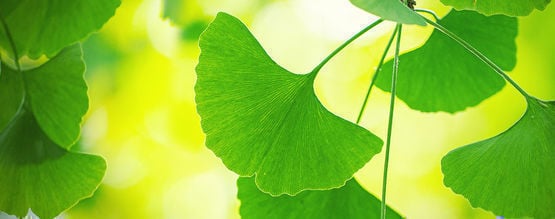 6 min
18 October 2022
Getting The Most Out Of Ginkgo Biloba
As a type of tree dating back many millions of years, Ginkgo biloba has long been utilised for holistic purposes. From promoting sleep readiness to potentially improving mood, there is plenty to...
6 min
18 October 2022
Getting The Most Out Of Ginkgo Biloba
As a type of tree dating back many millions of years, Ginkgo biloba has long been utilised for holistic purposes. From promoting sleep readiness to potentially improving mood, there is plenty to...





 United States
United States











